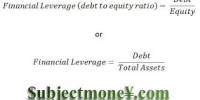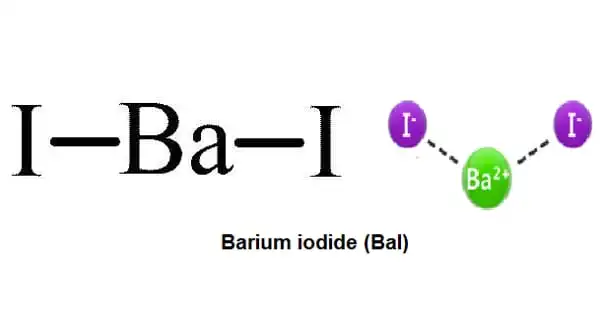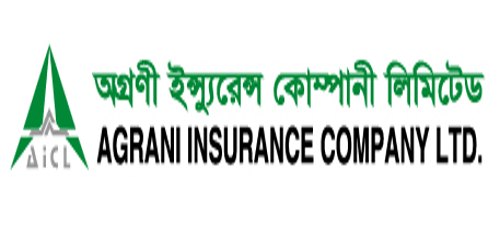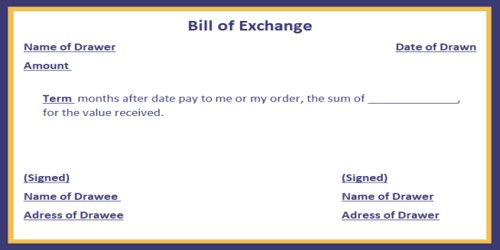History of BRAC Bank Limited
BRAC Bank is a scheduled commercial bank established under the Banking Companies Act, 1991 and incorporated as a public company limited by shares on 20 May, 1999 under the Companies Act, 1994 in Bangladesh. The primary objective of the Bank is to carry on all kinds of banking business. The Bank could not start its operation till 03 June, 2001 since the activity of the Bank was suspended by the High Court of Bangladesh. Subsequently, the judgment of the High Court was set aside and dismissed by the Appellate Division of Supreme Court on 04 June, 2001 and accordingly, the Bank has started operations from 04 July, 2001.
BRAC Bank has a unique institutional shareholding between BRAC, the largest DFO in the world, the International Finance Corporation (IFC), the commercial arm of the World Bank Group, and Shore Cap International, a concern of Shore Bank Corporation, America’s first and leading community development and environmental banking corporation. A fully operational Commercial Bank, BRAC Bank focuses on pursuing unexplored market niches in the Small and Medium Enterprise Business, which hitherto has remained largely untapped within the country. Almost 40% of BRAC Bank’s clients had no prior experience with formal banking. The Bank has 313 regional marketing unit offices offering services in the heart of rural and urban communities and employs about 1,800 business loan officers – around 70% of total staff.
BRAC Bank Limited, a full service commercial bank with Local and International Institutional shareholding, is primarily driven by creating opportunities and pursuing market niches not traditionally met by conventional banks. BRAC Bank has been striving to provide “Best-in-the-class” services to its diverse range of customers spread across the country under an on-line banking platform.
The reason BRAC Bank is in business is to build a profitable and socially responsible financial institution focused on markets and businesses with growth potential, thereby assisting BRAC and stakeholders to build a “just, enlightened, healthy, democratic and poverty free Bangladesh.” Which means to help make communities and economy of the country stronger and to help people achieve their dreams?
BRAC Bank Limited
Corporate Mission
Sustained growth in Small & Medium Enterprise sector
Continuous low-cost deposit Growth with controlled growth in retail assets.
Corporate Assets to be funded through self-liability mobilization. Growth in Assets through syndications and investment in faster growing sectors.
Continuous endeavor to increase non-funded income
Keep our debt charges at 2% to maintain a steady profitable growth
Achieve efficient synergies between the bank’s branches, SME unit offices and BRAC field offices for delivery of remittance and Bank’s other products and services
Manage various lines of business in a full controlled environment with no compromise on service quality
Keep a divers, far flung team fully controlled environment with no compromise on service quality
Keep a diverse, far flung team fully motivated and driven towards materializing the bank’s vision into reality
Corporate Vision
Building profitable and socially responsible financial institution focused on Market and Business with Growth potential, thereby assisting BRAC and stakeholders to build a just, enlightened, healthy democratic and poverty free Bangladesh”.
Strategy statement
Our Strength emanates from our owner – BRAC. This means, we will hold the following values and will be guided by BRAC as we do our work.
Value the fact that one is a member of the BRAC family
Creating an honest, open and enabling environment
Have a strong customer focus and build relationships based on integrity, superior service and mutual benefit
Strive for profit & sound growth
Work as team to serve the best interest of our owners
Relentless in pursuit of business innovation and improvement
Value and respect people and make decisions based on merit
Base recognition and reward on performance
Responsible, trustworthy and law-abiding in all that we do.
BRAC Bank Limited
Table: 01
| Name of Shareholder | Total Shares | % of Total Share |
| BRAC | 140,612,780 | 43.77 |
| Mr. Fazle Hasan Abed | 3,180 | 0.001 |
| Mr. Syed Humayun kabir | 3,180 | 0.001 |
| Mr. A.S Mahmud | 2,660 | 0.001 |
| Mr. Faruq A. Choudhury | 2,660 | 0.001 |
| Mr. Dr. Saleh Uddin Ahmed | 3,180 | 0.001 |
| Mr. Md. Aminul Alam | 4,390 | 0.001 |
| Ms. Tamara Hasan Abed | 2,660 | 0.001 |
| Mr. Shib Narayan Kairy | 2,420 | 0.001 |
| International Finance Corporation (IFC) | 17,211,270 | 5.36 |
| ShoreCap International Ltd. | 2,774,200 | 0.86 |
| General Shareholders | 160,612,620 | 50.00 |
| Total | 321,235,200 | 100.00 |
BRAC Bank Limited
Chairman of BRAC Bank is Mr. Muhammad A. (Rumee) Ali. And the Bank have another 6 director.
BRAC Bank Limited
Total assets of the bank rose to BDT 133,201 million in 2011 from BDT 117,298 million in 2010 registering a growth of 13.6%. significant increase in assets documented in loans & advances, investments, fixed assets and cash assets maintained by the bank.
- Paid up capital of the bank.
- Statutory reserve calculated @ 20% of profit as required by the bank companies Act. 1991.
- Non-repayable share premium account.
- General reserve.
- Retained earnings.
- Minority interest of subsidiaries (For consolidated CAR).
- Dividend equalization account
BRAC Bank Limited
BRAC Bank is an active member of Global Alliance for Banking on Values (GABV). As a member of the global alliance BRAC Bank believes in the 3P philosophy i.e. Planet, People and Profit. In the year of 2010 Financial Times and IFC jointly awarded BRAC Bank as the Sustainable Banking Awards in the category of Emerging Markets, Asia. This year BRAC Bank is also participating in the 4th Annual Meeting of GABV at Vancouver. Mr. Muhammad A. (Rumee) Ali, Chairman and Mr. Syed Mahbubur Rahman, Managing Director & CEO are participating in the meeting along with two other delegates.
BRAC Bank Limited
Boards of directors are the sole authority to take decision about the affairs of the business. Now there are 5 directors in the management of the bank. All the directors have good academic background and have huge experience in business. Mr. Fazle Hasan Abed is the chairperson of the bank. The board of directors holds meetings on a regular basis.
BRAC Bank Limited.
Human Resources Development activities aim at fulfilling the bank’s Mission. One of their four major missions is to: “Provide service to our clients with the help of as killed and dedicated workforce whose creative talents, innovative actions and competitive edge make our position unique in giving quality service to all institutions and individuals that we care for.”
Skilled and dedicated workforce with creative talents, innovative actions are not always readily available. Appreciating the scarcity of such manpower, the bank from the very beginning laid importance to HRD that conceptually includes activities like: pre-recruitment drill, recruitment, induction, training in the Academy, job rotation, placement & posting, reward and promotion. Management of BRAC Bank not only appreciates the need of skills required for day to day banking but also realizes the need for skills to meet the global & national financial and economic environments that are changing fast. Meeting the needs of new skills arising out of Financial Sector Reforms Program (FSRP) is also a major concern of the management. Therefore they have a training academy that is fully equipped with a professional library, modern training aids and professional faculty. The training academy of BRAC Bank re-designs its courses and programs regularly to meet the requirement of new skills and develop its human resources accordingly.
Import Department:
Import is the flow of goods and services purchased by economic agents located in one country from economic agents located in another. Hence, import of merchandise essentially involves two things: bringing of goods physically into the country and remittance of foreign exchange towards the cost of the merchandise and services connected with its dispatch to the importer.
Growth of Import:
In FY 2011-12, import payments and export earnings are estimated by the government at USD 35400 million and 25700 million respectively. However, in 2010-11, import payments was USD 22660 million and export earnings was USD 22930 million. Import payment of September 2011 was 34.66 percent higher than that of September 2010. Import payments during July to October 2011-12 is USD 11739.4 million, which has increased by USD 2185.4 million or 22.87 percent as compared to USD 9554 million during July to October 2010-11.
Export Department:
The goods and services sold by Bangladesh to foreign households, businessmen and Government are called export. The export trade of the country is regulated by the Imports and Exports (control) Act, 1950. There are a number of formalities, which an exporter has to fulfill before and after shipment of goods. The exports from Bangladesh are subject to export trade control exercised by the Ministry Of Commerce through Chief Controller of Imports and Exports (CCI & E).
Growth of Export:
Export earning was USD 2339.52 million in July 2011 while it was USD 1818.75 million in July 2010. Total export earnings during July-November, 2011 was USD 9709.77 million, which has increased by USD 1433.54 million or 17.32 percent as compared to USD 8276.23 million in July-November 2010-11.
Foreign Remittance Department:
BRAC Bank, Gulshan Branch is an authorized dealer of foreign exchange. The department’s dealing in foreign exchange involves buying and selling of foreign exchange converting inward remittances received from abroad and outward remittances sent abroad.
Growth of Remittance:
The foreign exchange remittances from Bangladeshi nationals working abroad decreased by US$ 130.69 million or 12.57 percent to become US$ 908.79 million during November’11 compared to US$ 1039.48 million at the end of October’11. During July’11-November’11, remittances increased by US$ 339.65 million or 7.41 percent to reach US$ 4921.07 million compared to US$ 4581.43 million during the same period of last year.
Strengths:
Goodwill: BRAC Bank LTD has already established a favorable reputation in the banking industry of the country particularly among the new comers. Within a period of 5 years, BBL has already established a firm footing in the banking sector having tremendous growth in the profits and deposits. All these have leaded them to earn a reputation in the banking field
Sponsors: BBL has been founded by a group of eminent entrepreneurs of the country having adequate financial strength. The sponsor directors belong to prominent resources persons of the country. The Board of Directors headed by its Chairman Mr. F. H. Abed. Therefore, BBL has a strong financial strength and it built upon a strong foundation.
Efficient Management: The top management of the bank is also major strength for the BBL has contributed heavily towards the growth and development of the bank. The top management officials have all worked in reputed banks and their years of banking experience, skills, expertise will continue to contribute towards further expansion of the bank. At BBL, the top management is the driving force and the think tank of the organization where policies are crafted and often cascaded down.
Facilities and equipment: BBL has adequate physical facilities and equipments to provide better services to the customers. The bank has computerized and online banking operations under the software called MBS banking operations. Counting machines in the teller counters have been installed for speedy service ant the cash counters. Computerized statements for the customers as well as for the internal use of the banks are also available.
Weaknesses:
Lack of advertising and promotion of SME loan: This is a major set back for BBL and one of its weakest areas. BBL’s adverting and promotional activities are satisfactory but it SME loan is not advertised well. It does not expose its SME product to general public and are not in lime light. As a result large numbers of people are not aware of the existence of this bank.
NGO name (BRAC): BRAC is one of the largest NGO of the world and it is operating its activities in Bangladesh. BRAC bank is not a NGO bank but many people of them country consider it as a NGO bank like Grameen bank which is not correct.
Remuneration: The remuneration package for the entry and the mid level management is considerably low. The compensation package for BBL entry level positions is even lower than the contemporary banks. Under the existing low payment structure, it will be difficult to attract and retain higher educated employees in BBL. Especially CROs are not satisfied with compensation package provided to them.
Opportunities:
ATM: BBL always tries to provide excellent services to its customers. By considering this thing BBL provides ATM card to its customers and also provide available ATM booth in different locations in whole country.
Diversification: BBL can pursue a diversification strategy in expanding its current line of business. The management can consider options of starting merchant banking or diversify in to leasing and insurance. By expanding their business portfolio, BBL can reduce their business risk.
Product line proliferation: In this competitive environment BBL must expand its product line to enhance its sustainable competitive advantage.
Available Branches: With its proper and useful operational network, there is an opportunity for IFIC to further expand its branches in many remote and new location of the country which will deliver services to customer and earn a healthy profit for the bank.
Threats:
Competition: Competition is the threat of any business. At the age of modern business the competition is increasing. Every banks has an intention to provide better services compared to others for capturing the customers.
Multinational banks: The emergence of multinational banks and their rapid expansion poses a potential threat to the new growing private banks. Due to the booming energy sector, more foreign banks are expected to arrive in Bangladesh. Moreover, the already existing foreign bank such as Standard Chartered is now pursuing an aggressive branch expansion strategy. This bank is establishing more branches countrywide and already launched is SME operation. Since the foreign banks have tremendous financial strength, it will pose a threat to local banks.
Upcoming banks: The upcoming private local banks can also pose a threat to the existing private commercial banks like BBL. It is expected that in the next few years more local private banks may emerge. If that happens the intensity of competition will rise further and banks will have to develop strategies to compete against an on slaughter of foreign banks.
Contemporary banks: The contemporary banks of BBL such as Dhaka bank, prime bank and Dutch Bangla are its major rivals. Prime bank and other banks are carrying out aggressive campaign to attract lucrative clients as well as big time depositors.
















